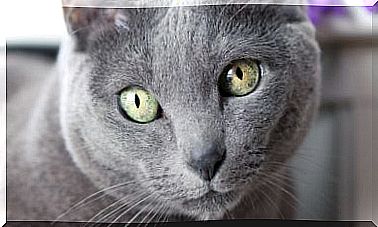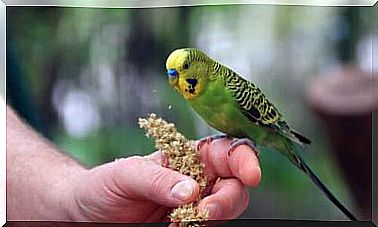Stress In Cats During Confinement
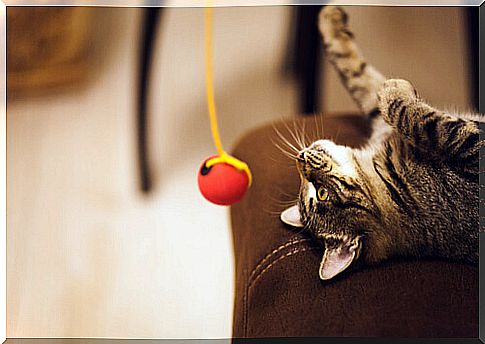
It is not common for a cat to go outside, but you have surely noticed a change in its routine now that the house is never empty due to quarantine. With more free time to devote to your pet, this is a good time to take advantage of and improve your space at home. We give you some keys to prevent stress in cats.
How to detect stress in cats?
Stress in cats can cause health problems: it affects the immune system, and can lead to eating disorders and alopecia.
A stressed cat can be very reactive, nervous, and agitated. His normal behavior can change and scratch places that he did not scratch before, relieve himself outside the sandbox, mark, perform compulsive behaviors, excess vocalizations and hyperactivity among others.
The position of the body, the ears, the size of the pupils, the whiskers and the tail are indicative of the animal’s state of mind. These signs can give you a clue to their stress level.
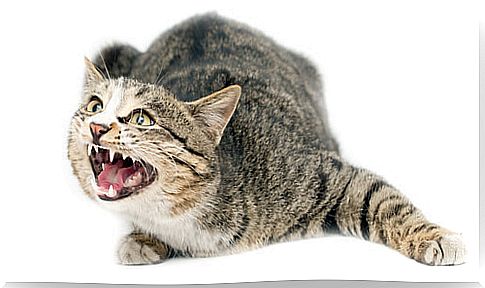
A frustrated or anxious cat has dilated pupils and its ears and whiskers point forward, keeping the body tight and shrunken with the tail still or with the tip moving from side to side. They can also meow constantly and walk back and forth repetitively. These repeated movements are called stereotypes.
If you detect any of these signs for a long time, the first thing you should do is rule out a possible health problem with the veterinarian. Once you make sure that this change in behavior does not hide any pathology, find out what may be causing stress in your pet to eliminate the cause and start treating the problem.
Causes of stress in felines
Here are the most common causes of stress in domestic cats:
- Changes during confinement. A house inhabited 24 hours a day is a new situation that the feline is not used to. Although you enjoy human company, it is important to leave your space, since cats are very independent animals and when they request attention they will ask for it.
- Little environmental enrichment. This problem is common in many households with cats. L to lack of stimulation causes stress in pets. It is important to cover all its physical and mental needs to keep the feline healthy and happy: a suitable scratcher, toys to activate its hunting instinct and exercise or a window through which to look are some of the elements that enrich its environment.
- Insufficient resources. This problem occurs in houses in which more than one cat live. If there are not enough resources for both animals, competition problems can be created for them or for the care of their owners. Ideally, have enough toys, feeders, fountains, resting places, and scratching posts for both of you. As for sandboxes, it is advisable to have as many as there are cats at home plus an additional one.
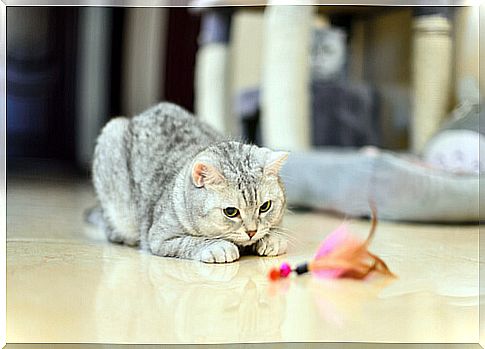
How to avoid stress in cats?
Eliminating the cause of stress is the best solution to improve the life of the feline, but there are also a few tricks that you can practice while identifying the source of the problem:
- Stimulate play. It is a good way to keep the cat in shape while spending time together.
- Increase environmental enrichment. With new places of refuge (you can put cardboard boxes, cats love them), scratchers of various heights well anchored to the ground or access to a window (always protected to prevent falls).
- Use appeasement pheromones. They are sold in a diffuser plugged into the current and there are several types: relaxation, to reduce confrontations and to redirect scratches.
Stress in cats can become chronic over time if it is not solved, causing serious health problems. As guardians, it must be borne in mind that they are hunting animals and very active at certain times of the day. For this reason, it is important to emphasize that cats need sufficient stimulation in their daily life, not only during quarantine.



